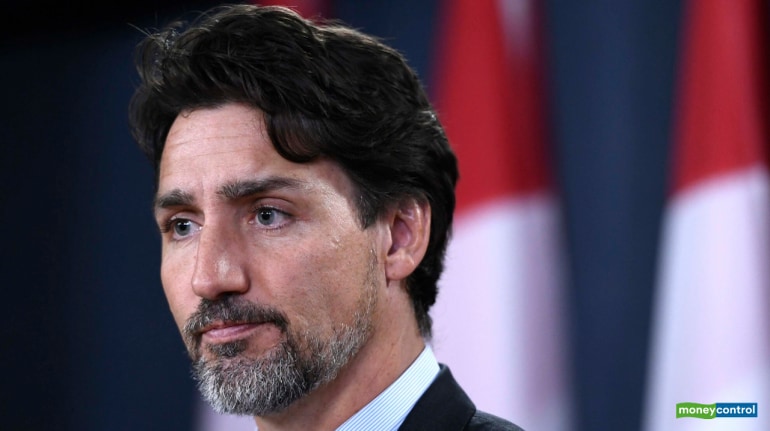



Canada will provide 10 million dollars to India to support the country in its fight against the unprecedented second wave of the COVID-19 pandemic, Prime Minister Justin Trudeau has announced.
Addressing a press conference, Trudeau said that Minister of Foreign Affairs Marc Garneau had direct conversations with his Indian counterpart S Jaishankar about how Canada can best help, including the donation of extra medical supplies.
We are also ready to provide 10 million dollars through the Canadian Red Cross to the Indian Red Cross, the Prime Minister said.
This will support everything from ambulant services to buying more Personal Protective Equipment locally, he said.
If you want to donate to the emergency efforts on the ground, go to redcross.ca As a world, we are in this fight together, Trudeau said.
Follow our LIVE blog for latest updates of the novel coronavirus pandemicAbout the talks between the Foreign Affairs Ministers of both the countries, he said: We are there to support in any ways we can, and those conversations are very much ongoing.
It’s something that Canadians are extremely concerned about as we see the terrible and tragic images coming out of India. We know that we need to be there for our friends. And indeed, we need to be there for everyone around the world because we don’t get through this pandemic anywhere until we get through it everywhere, Trudeau said.
Earlier, Foreign Affairs Minister Garneau said on Twitter that he spoke to his Indian counterpart Jaishankar about the Covid-19 situation in the country and conveyed Canada’s solidarity with the people of India. This morning, I spoke with @DrSJaishankar to convey Canada’s solidarity with the people of India as they face this deadly wave of #Covid19. Canada is exploring all options to support India’s urgent needs. We are ready to assist, he said in a tweet.
India is struggling with a second wave of the pandemic with more than 3,00,000 daily new coronavirus cases being reported in the past few days, and hospitals in several states are reeling under a shortage of medical oxygen and beds.
India saw a record single-day rise of 3,60,960 coronavirus cases, which pushed the total tally to 1,79,97,267, while the death toll crossed two lakh following 3,293 fresh fatalities, the health ministry said on Wednesday. The death toll stands at 2,01,187, it said.
Follow our full coverage of the coronavirus pandemic here.Discover the latest Business News, Sensex, and Nifty updates. Obtain Personal Finance insights, tax queries, and expert opinions on Moneycontrol or download the Moneycontrol App to stay updated!
Find the best of Al News in one place, specially curated for you every weekend.
Stay on top of the latest tech trends and biggest startup news.